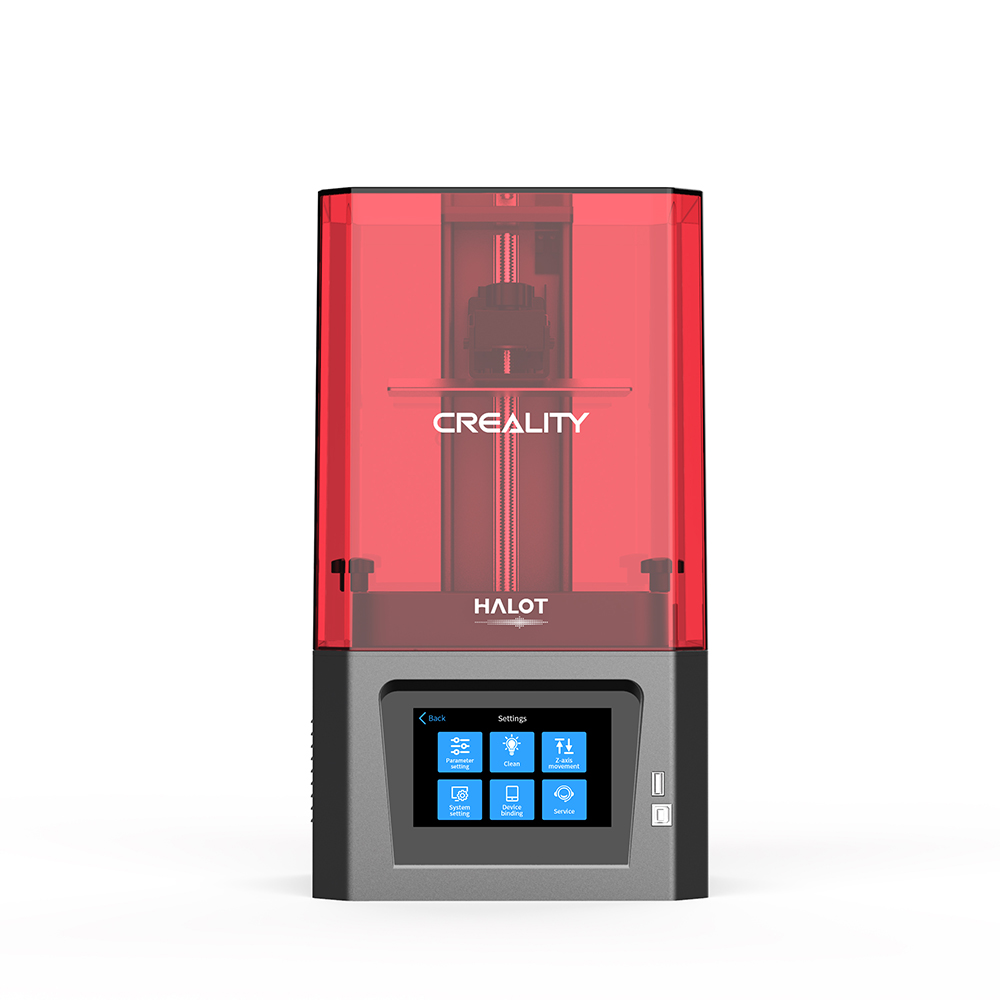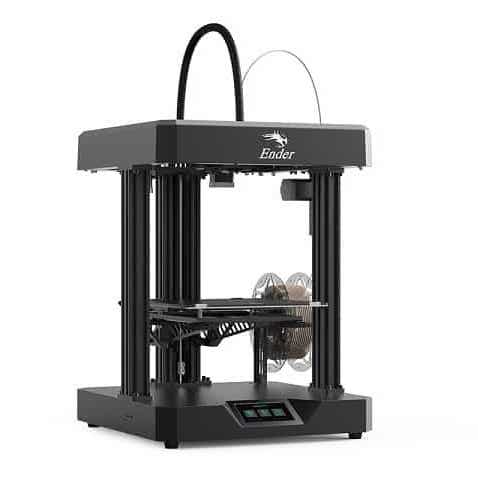Compare Halot One vs Ender 7
Comparison between the best 3D printers
Choose the best 3D printer at the best price. The cheapest 3D printers are here.
Buy a 3D printer here with 3D Fila.
 |
 |
|
| Model | Halot One |
Ender 7[BUY Ender 7] |
| Printing Material | Resin | Filament |
| Buy Resin for Creality 3D Halot One | Buy Filament forCreality 3D Ender 7 | |
| Estimated price | $250,00 | $429,00 |
| Manufacturer | Creality 3D | Creality 3D |
| Release Year | 2021 | 2021 |
| Print Volume [mm] | 127x80x160 | 250x250x300 |
| Printer Size [mm] | 221x221x404 | 430x460x570 |
| Weight [kg] | 7,1 | 17,2 |
| Power Loss Recovery | NO | YES |
| Maximum Resolution [mm] | 2k | 0,1 |
| Processor | Creality CR-FDM V.2.4.S1_V101 32bits | |
| Display | Display touchscreen 4,3'' | |
| Power Supply | 110/220V / 350W | |
| Connectivity | SD / USB | |
| Operating systems | Windows, Mac, Linux | Windows, Mac, Linux |
| Date of registration in the system | 2022-10-11 | 2022-11-04 |
| Release date | 2021 | 2021 |
| Extra features | Crealitys Halot-One printer stands out with several innovative features. It has a high-resolution touchscreen, providing an intuitive and responsive interface. Its quiet printing capability is remarkable, ideal for environments where noise is a concern. Assembly and setup are simple, with automatic functions facilitating quick start. Among its features, remote monitoring and adjustments via the Creality Cloud app stand out, simplifying remote print management. Replacing the FEP in the resin vat is easy, and the printer even includes extra FEP sheets. Top cover removal detection increases safety by automatically pausing printing. In addition, its integral light source promises high uniformity, optimizing print quality. | Crealitys Ender 7 printer offers remarkable print speeds, utilizing CoreXY kinematics for precise and fast movement. With a 250x250x300mm build area, dual direct extruder, and custom hotend, the Ender 7 is capable of printing at high speeds, although quality may suffer on smaller prints. Assembly is relatively straightforward, but the machine is noisy and can get hot. Its true speed potential is most noticeable on larger prints, where it outperforms its competitors. |
| Support for multiple colors and materials (AMS and CFS) | NO | NO |
Notes * |
||
| Cost-benefit | 8 / 10 | 7 / 10 |
| Hardware | 0.6 / 10 | 2.4 / 10 |
| Tela | . | . |
| Print volume | 3 / 10 | 4 / 10 |
| Performance | 9 / 10 | 2 / 10 |
| [BUY Ender 7] |
Conclusion |
| In comparing the Halot One and the Ender 7 3D printers, several key factors come into play that can influence a purchasing decision. Firstly, price is a significant consideration, with the Halot One being the more affordable option. This makes it an attractive choice for hobbyists or those new to 3D printing who may be cautious about investing in higher-end models. Despite its lower cost, the Halot One offers excellent features such as high-resolution printing, quiet operation, and user-friendly setup, making it a strong contender for anyone focused on quality and ease of use. On the other hand, while the Ender 7 commands a higher price, it compensates with superior print volume and speed capabilities thanks to its CoreXY kinematics. This makes it ideal for users who require faster prints or plan on creating larger projects. However, it does come with drawbacks such as increased noise levels and potential quality degradation on smaller prints, which may deter some users. Additionally, the Halot One scores higher in terms of print performance for detailed models, while the Ender 7 shines in handling larger items more swiftly. The Ender 7 also features power loss recovery—a critical feature for those concerned about print integrity during power interruptions, which the Halot One lacks. Ultimately, the decision between the two printers will depend on specific user needs. If budget constraints, print detail, and quieter operation are priorities, the Halot One is an excellent choice. Conversely, for those needing larger build capacities and faster print times, the Ender 7 may justify its higher cost despite the potential trade-offs in noise and print quality on smaller jobs. Each printer has its strengths, making it essential for buyers to align their selection with their 3D printing goals and preferences. |

